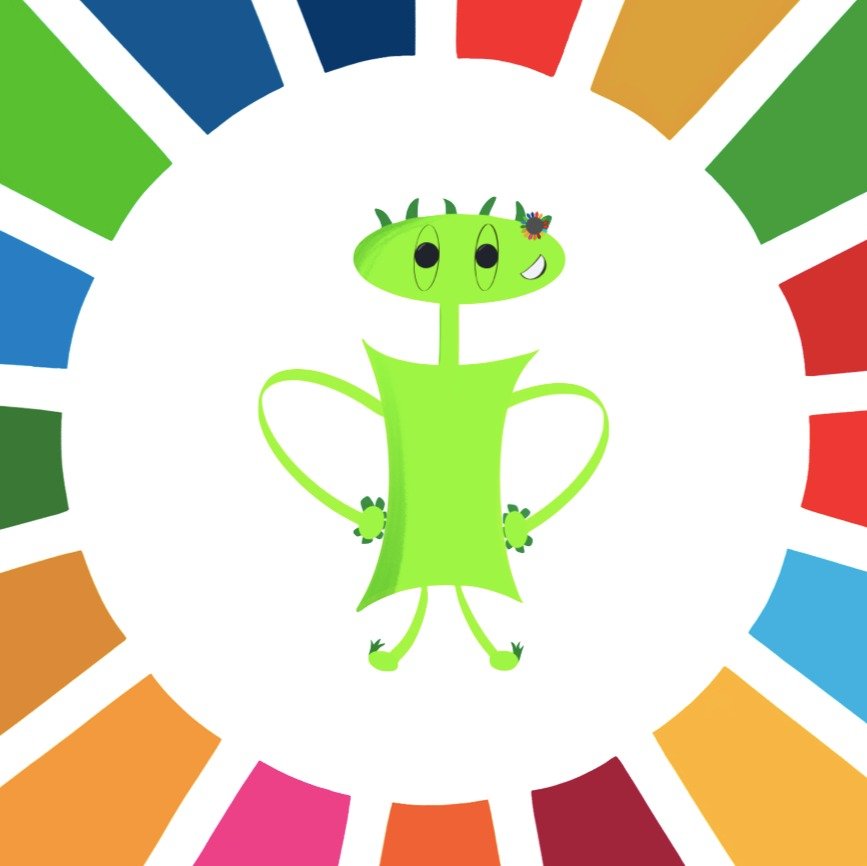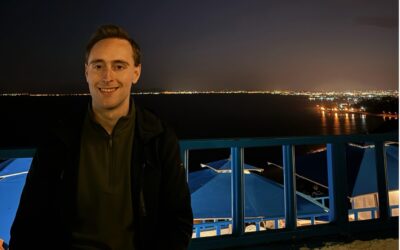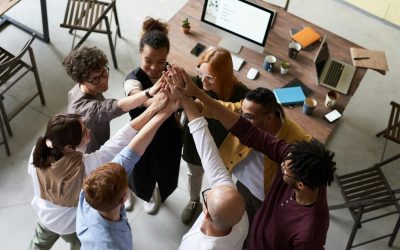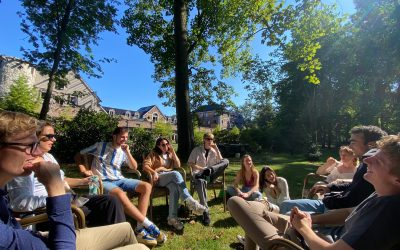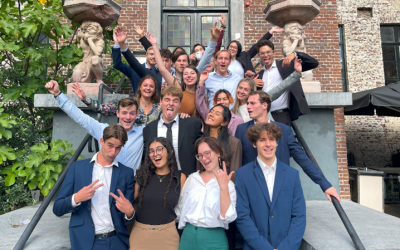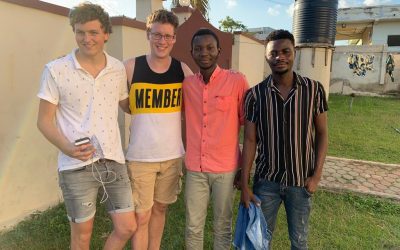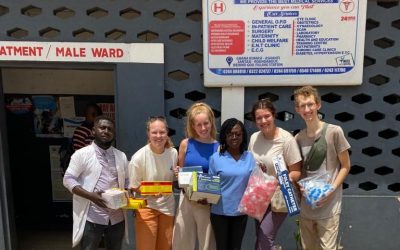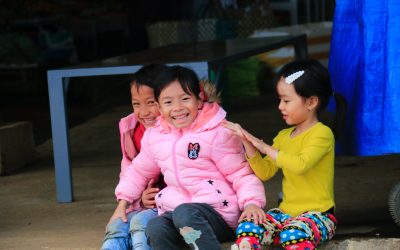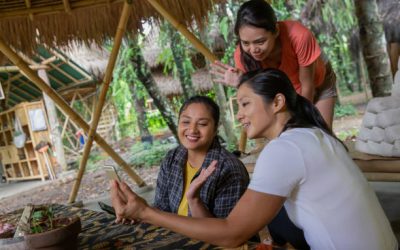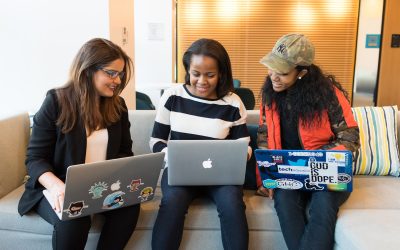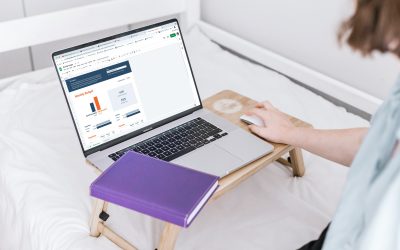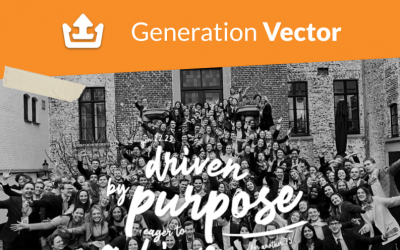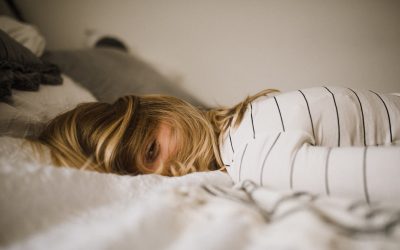In October 2020, Jesler van Houdt published a children’s picture book based on the United Nations’ Sustainable Development Goals. As a current AIESECer in the Netherlands herself, we thought it would be nice to ask Jesler about her inspiration, motivation and eventually the process of writing the book. Read all answers below!
Welcome, Jesler! Can you tell us a little bit about yourself and your book?
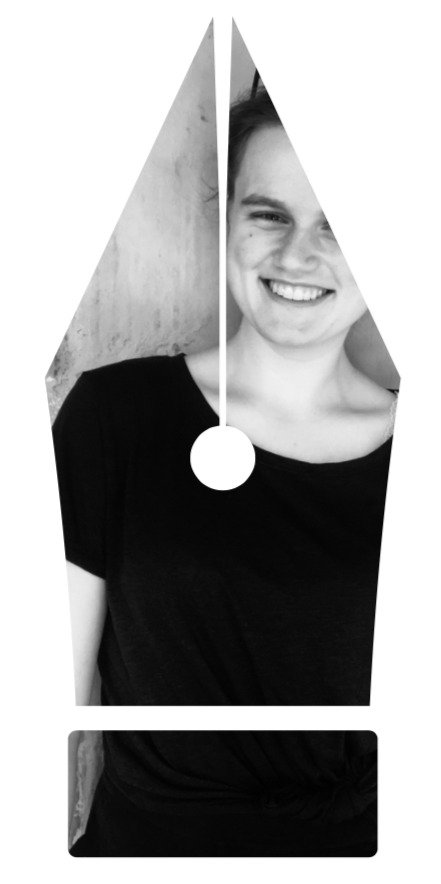 Of course! I’m Jesler van Houdt and I’m currently finishing up my Double Bachelor’s Degree at University College Maastricht and University College Freiburg where I study environmental sciences with a focus on social sciences, and law. I decided to study environmental studies about four years ago because I realised that sustainability and environmental protection were passions of mine. And they still are! I live very environmentally conscious in my day-to-day life and try to bring this into other aspects of my life as well. This, by the way, is also why I joined AIESEC a bit more than 3 years ago – I really liked the organisation’s focus on the Sustainable Development Goals and how it combined this with cross-cultural cooperation and understanding.
Of course! I’m Jesler van Houdt and I’m currently finishing up my Double Bachelor’s Degree at University College Maastricht and University College Freiburg where I study environmental sciences with a focus on social sciences, and law. I decided to study environmental studies about four years ago because I realised that sustainability and environmental protection were passions of mine. And they still are! I live very environmentally conscious in my day-to-day life and try to bring this into other aspects of my life as well. This, by the way, is also why I joined AIESEC a bit more than 3 years ago – I really liked the organisation’s focus on the Sustainable Development Goals and how it combined this with cross-cultural cooperation and understanding.
I feel like in AIESEC, we have this strong focus on finding solutions and doing what we can – however small that may be – to make this world a better place. I wanted to incorporate this same feeling in my children’s book. The book 17 Sweet, Devoted, Generous Monsters, in short, the SDG Monsters, introduces one monster per SDG and explains in a very simple way what this monster does to make a difference in the world and why. These are all little things – something a small child can do as well. For example sharing toys/books (in the book related to ‘no poverty’ (SDG 1). But this obviously also relates to ‘responsible consumption’ (SDG 12). After all, most SDGs are closely related) or turning off the water tap when brushing your teeth (SDG 11). Hereby, making the actions relatable, doable and universal was very important to me.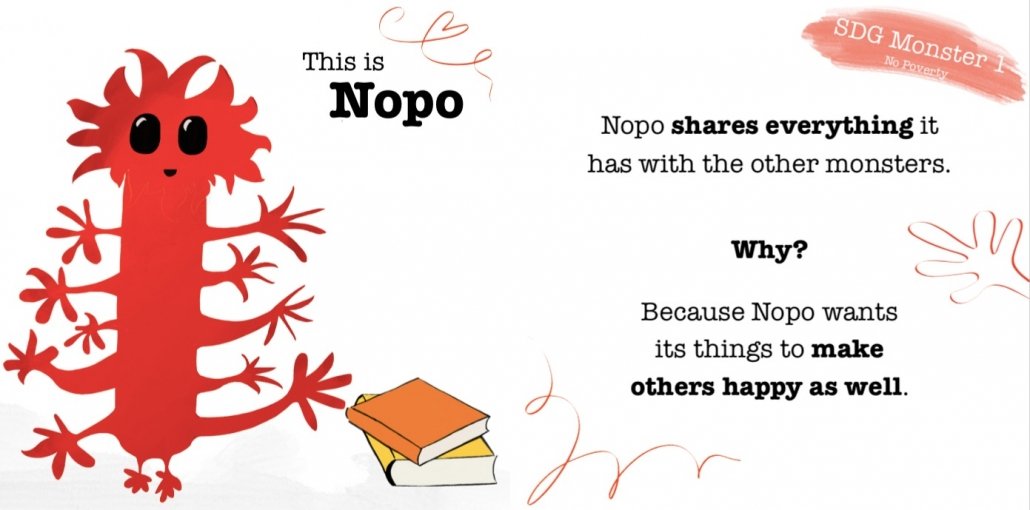
And why is that?
I remember getting interested in sustainability myself when I was younger and googling how I can live more environmentally friendly. This was maybe 7 years ago – back then the topic of sustainability wasn’t as mainstream as it is today and the tips I found didn’t go further than changing your lightbulbs and changing to a green energy supplier. As a teenager living with my parents, this didn’t help me. I wanted to do it differently in my book.
You mention in your description of the book online that it is written using gender-neutral language. Why did you do this?
Exactly, the SDG Monsters are gender-neutral (all but one). Doing this was a conscious decision that I also explain at the end of my book. Intuitively, I gave all monsters a gender, but after thinking twice about this, I questioned why. By consciously not gendering most monsters, I want to increase the number of children identifying with the monsters. All while reducing the danger of including or creating unwanted stereotypes. After all, the book isn’t about whether a specific monster is male, female or non-binary, but rather about their actions.
So, how did you go about writing and then publishing the book?
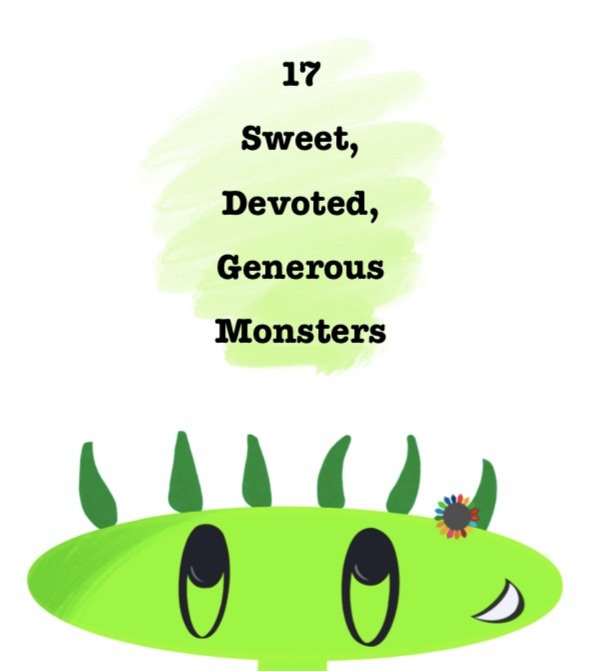 Quite honestly, I just had fun with it. I looked at the colours of the specific SDG I would be designing the monster for, read through the description of the SDG on the United Nation’s website and then thought about how I can downscale this so that it makes sense to a 4-year-old. And then I just started drawing.
Quite honestly, I just had fun with it. I looked at the colours of the specific SDG I would be designing the monster for, read through the description of the SDG on the United Nation’s website and then thought about how I can downscale this so that it makes sense to a 4-year-old. And then I just started drawing.
The process of publishing was more difficult. But I did self-publish my book, which means that I had more control over the process than if I would have submitted the book to publishers. The platform I used is Tredition, which helps with printing and some of the marketing.
Finally, you are a member of AIESEC The Netherlands and have been for more than 3 years. Did this help you in writing the book?
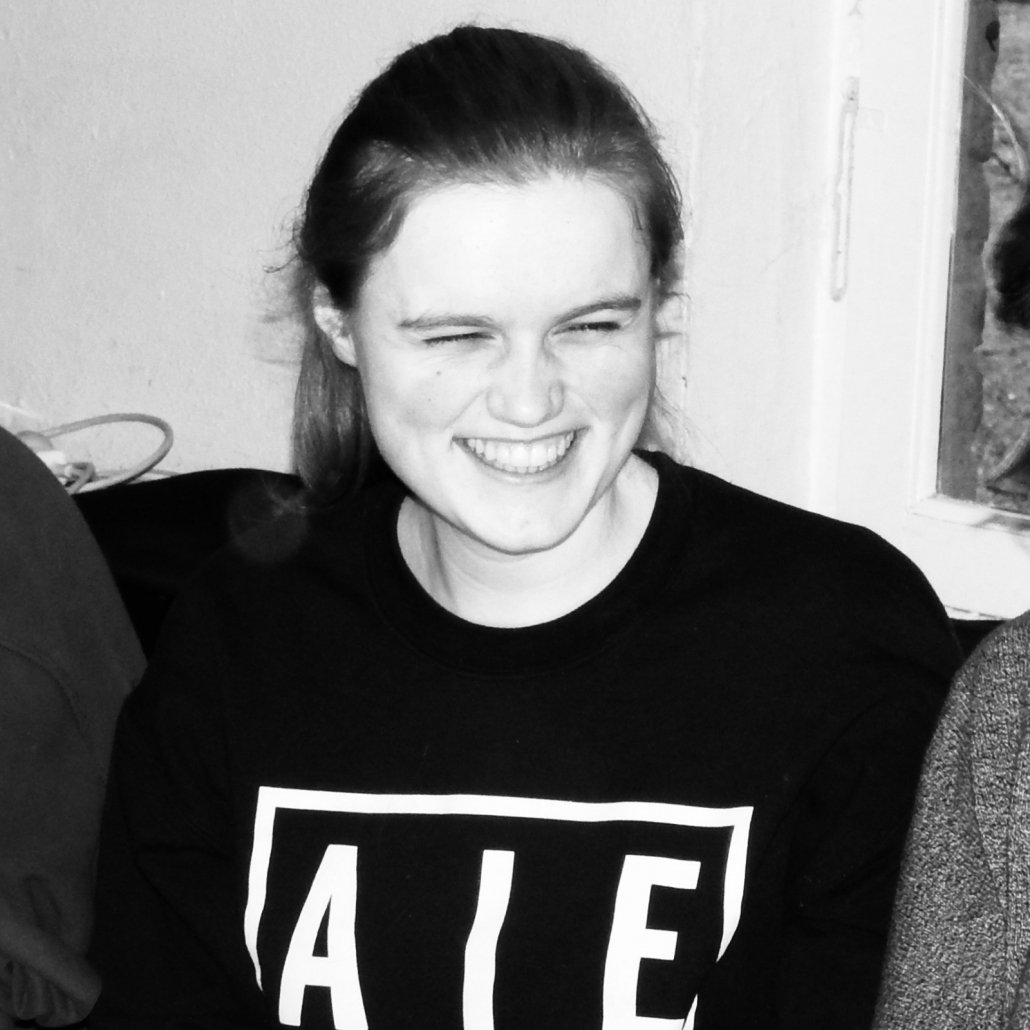 Definitely! I have been a member of AIESEC since the start of 2018. Firstly, I was Exchange Participant Manager, Team Leader and now Case Solver (so, going more into the legal direction). I already mentioned the strong focus on solution-orientedness that inspired me. Positivity, determination and taking a global perspective, which are all encouraged within AIESEC, should definitely be added to that list as well. So the mindset with which I wrote the book was definitely strongly shaped by my AIESEC experience.
Definitely! I have been a member of AIESEC since the start of 2018. Firstly, I was Exchange Participant Manager, Team Leader and now Case Solver (so, going more into the legal direction). I already mentioned the strong focus on solution-orientedness that inspired me. Positivity, determination and taking a global perspective, which are all encouraged within AIESEC, should definitely be added to that list as well. So the mindset with which I wrote the book was definitely strongly shaped by my AIESEC experience.
And then there is the AIESEC network that I built up of course. I’m honoured to say that Chris Arnold agreed to write a small foreword for my book. I met Chris through an AIESEC workshop and stayed in touch with him afterwards. And of course, then there are the people that read your book to give feedback, boost the book by sharing or commenting on your posts, etc. – I met many of the people that supported me like this through AIESEC.
That sounds great! Is there anything else you would like to add?
In the end, there’s one thing that is most important to me about the book, and that is sharing my passion for sustainability and the SDGs with the world. It never was about making money (you don’t publish a children’s book to make money, haha) or something like that. A few weeks ago, I got a message via LinkedIn from a primary school teacher living in Japan. She thanked me for writing a book that was so accessible to children that she could use in her class. That definitely was one of the greatest moments of this entire experience, if not in my life. And so, as a final thought, I just want to thank you for letting me share about this topic, for promoting the SDGs yourself and to everyone who is trying to have a positive impact on the world. Thank you and keep going!

